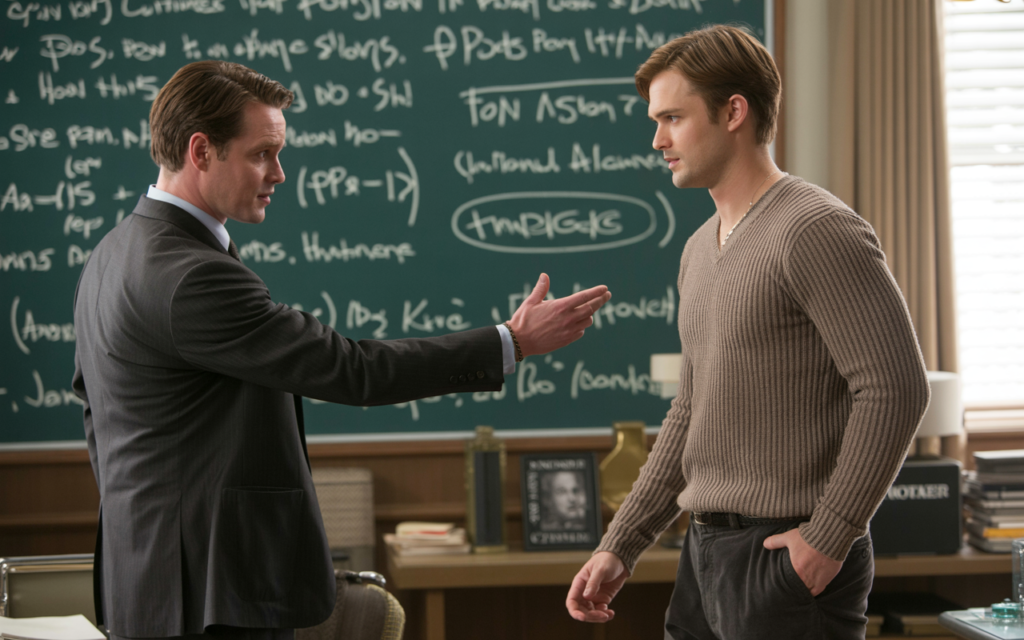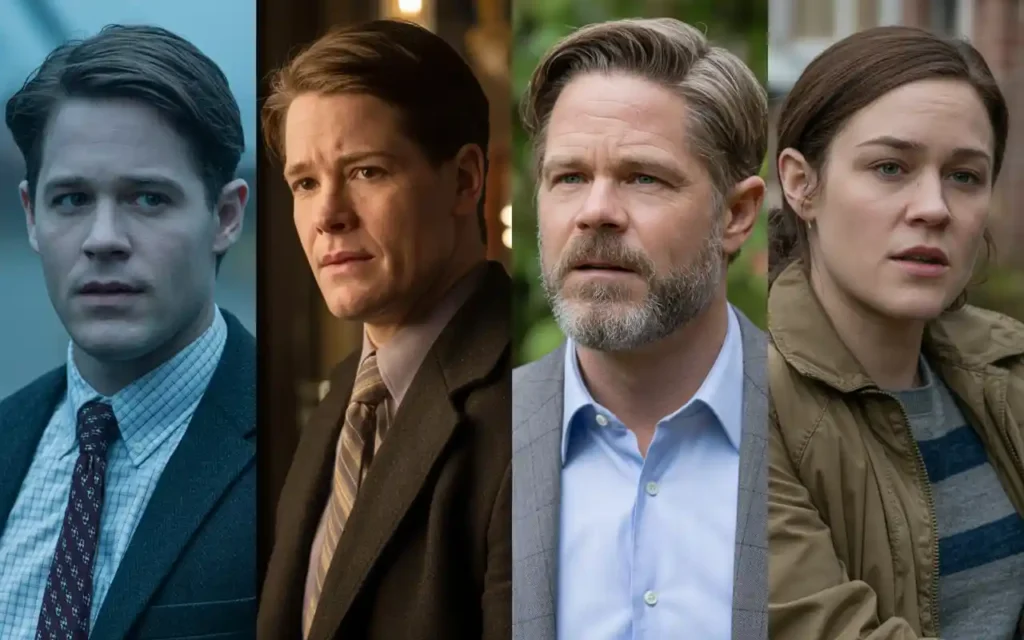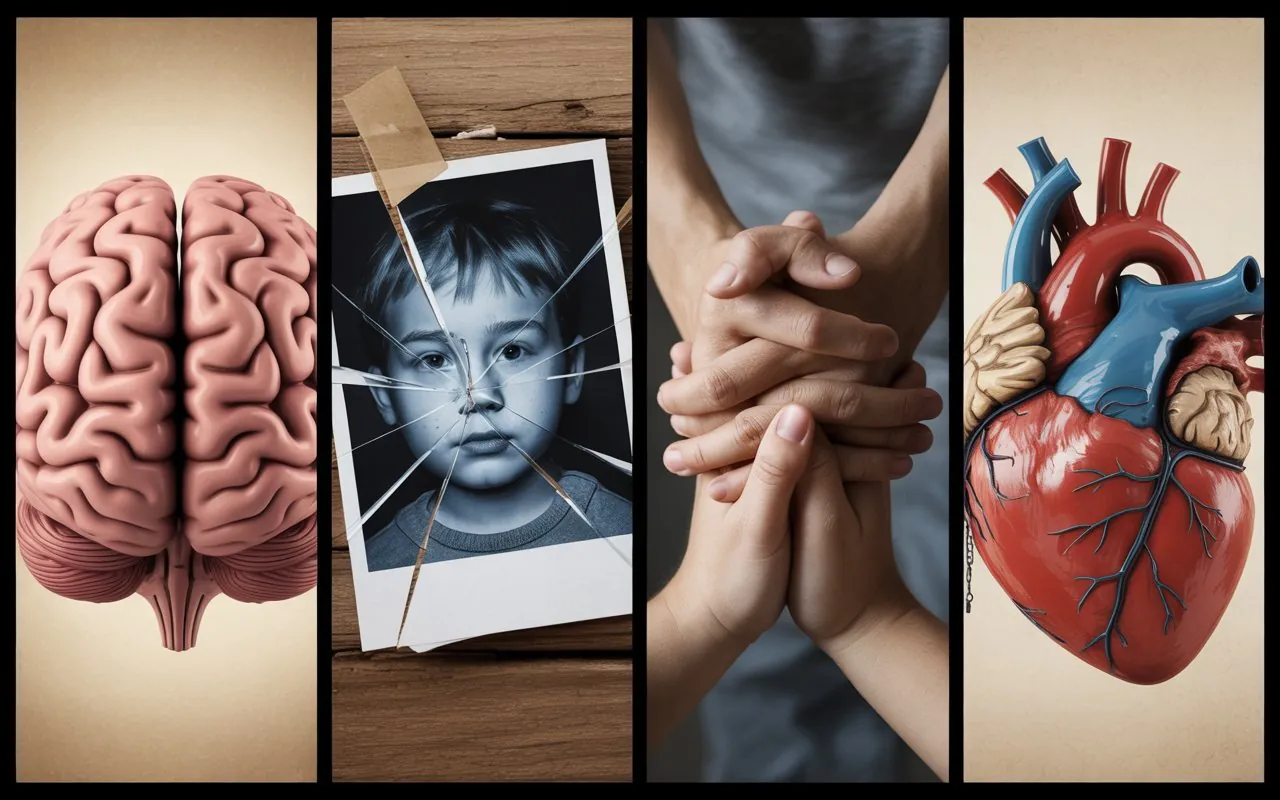There are films that entertain, films that make us laugh, and films that fade from memory as soon as the credits roll. And then there are films that stay with you, that burrow into your consciousness and challenge you to think about life, potential, and the invisible scars we all carry. Good Will Hunting is firmly in that last category. For anyone who has watched this 1997 masterpiece and found themselves asking what is Good Will Hunting about, the answer goes far beyond a simple plot summary. It’s a profound exploration of human connection, intellectual brilliance, and the difficult journey of healing from deep-seated trauma.
This guide is designed to provide a comprehensive answer to that central question. We will unpack the intricate layers of the story, analyze the unforgettable characters, and delve into the powerful themes that make this film a timeless classic. Understanding what is Good Will Hunting about is not just about following a story; it’s about confronting the complexities of the human heart and the courage it takes to build a life of authentic purpose.
The Plot: A Story of Untapped Potential

At its surface, the plot of Good Will Hunting follows the life of Will Hunting, a 20-year-old self-taught genius working as a janitor at the prestigious Massachusetts Institute of Technology (MIT). Despite possessing a level of intelligence that rivals the greatest minds in history, Will lives a simple, aimless life in South Boston with his loyal group of friends, spending his nights in bars and getting into fights.
The story is set in motion when Will anonymously solves a complex, graduate-level math problem left on a chalkboard by Professor Gerald Lambeau, a renowned Fields Medal winner. After Will is arrested for a street fight, Lambeau intervenes, offering him a deal: he will get Will leniency if Will agrees to study mathematics with him and attend therapy sessions.
This arrangement leads Will into the office of Dr. Sean Maguire, a community college psychology professor who, like Will, comes from a tough, working-class South Boston background. What follows is a powerful and often confrontational therapeutic relationship that forces Will to confront the deep-seated trauma from his abusive childhood, which has left him unable to form lasting relationships or live up to his extraordinary potential. The core narrative is a journey of healing, making the answer to what is Good Will Hunting about a story of personal transformation.
What Is Good Will Hunting About: The Central Characters
The film’s power lies in its deeply realized characters. Each one represents a different facet of Will’s world and plays a crucial role in his development. Understanding their motivations is key to understanding what is Good Will Hunting about.

Will Hunting (Matt Damon)
Will is the brilliant but deeply troubled protagonist. He uses his intelligence as a defense mechanism, a weapon to keep people at a distance and protect himself from the vulnerability he fears. He can deconstruct complex economic theories or solve impossible math proofs, but he is terrified of emotional intimacy. His journey is the central focus, and the entire film is an exploration of whether he will find the courage to move past his demons. The character of Will Hunting is the primary answer to the question of what is Good Will Hunting about.
Sean Maguire (Robin Williams)
Sean is the therapist who finally breaks through Will’s defenses. Unlike the other therapists Will has driven away, Sean is not intimidated by Will’s intellect. Having grown up in a similar environment and experienced his own profound loss and grief, Sean meets Will on a human level. He understands that Will’s problems are not intellectual but emotional. The relationship between Sean and Will is arguably the most important in the film and is central to answering what is Good Will Hunting about.
Professor Gerald Lambeau (Stellan Skarsgård)
Professor Lambeau represents the world of academia and the immense pressure of living up to one’s potential. Having been a prodigy himself, Lambeau sees Will’s gift as a near-sacred thing that must be nurtured and used for the good of humanity. His intentions are good, but he often fails to see Will as a person, viewing him more as a precious resource to be managed. His conflict with Sean over what is “best” for Will creates one of the film’s central philosophical debates. Lambeau’s perspective adds another layer to the question of what is Good Will Hunting about.
Skylar (Minnie Driver)
Skylar is a bright, wealthy British student at Harvard who falls in love with Will. She represents the possibility of a different future for him, one filled with love, travel, and emotional connection. Their relationship forces Will to confront his deepest fears of abandonment and intimacy. Skylar is not just a love interest; she is a catalyst who challenges Will to be vulnerable in a way he never has before. Her role is crucial in the exploration of what is Good Will Hunting about.
Chuckie Sullivan (Ben Affleck)
Chuckie is Will’s best friend and the leader of their tight-knit group of friends from Southie. He represents loyalty, friendship, and the world Will has always known. In one of the film’s most powerful scenes, Chuckie delivers a crucial piece of wisdom, telling Will that it would be an insult to his friends if he wasted his brilliant mind working construction for the rest of his life. He gives Will permission to leave, showing that true friendship is about wanting what is best for the other person, even if it means they have to go. This deep friendship is a significant part of what is Good Will Hunting about.
Unpacking the Major Themes
To truly understand what is Good Will Hunting about, we need to look beyond the plot and characters to the powerful themes that resonate throughout the film. These themes are what elevate the story from a simple drama to a profound piece of art.

The Burden of Genius and Wasted Potential
The film constantly asks what it means to be a genius. Is it a gift or a curse? For Will, his intellect is a source of isolation. It sets him apart from his friends and makes him a target for exploitation by people like Professor Lambeau. The movie explores the immense pressure that comes with having a gift that others believe you are obligated to use. The theme of wasted potential is a recurring motif, not just for Will, but for Sean and Lambeau as well, who both reflect on the different ways they have and have not lived up to their own early promise. This exploration of genius is a fundamental aspect of what is Good Will Hunting about.
What Is Good Will Hunting About: Trauma and the Healing Process
This is the emotional core of the film. The story is a powerful depiction of how childhood trauma can shape an adult’s entire life. Will’s defensive arrogance, his fear of intimacy, and his self-sabotaging behavior are all direct results of the physical abuse he suffered as a child.
The therapy sessions between Will and Sean are a masterclass in cinematic portrayals of healing. The film does not offer a quick fix. The healing process is shown to be slow, painful, and full of setbacks. The breakthrough moment, when Sean repeatedly tells Will, “It’s not your fault,” is one of the most emotionally resonant scenes in modern cinema. It’s a powerful acknowledgment that the first step to healing is understanding that you are not to blame for the pain that was inflicted upon you. This focus on healing makes the question of what is Good Will Hunting about a deeply psychological one.
The Meaning of Friendship and Loyalty
The friendship between Will and his “Southie” friends, particularly Chuckie, provides the film with its heart and soul. In a world where Will is being pulled towards academia and a different social class, his friends represent his anchor and his roots.
The film challenges the stereotypical depiction of working-class friendships. Chuckie and the others are not holding Will back. In fact, it is Chuckie who delivers one of the most profound and selfless speeches in the film, effectively telling Will that his real family wants him to leave and pursue the opportunities his genius affords him. This theme of unwavering loyalty and genuine love is a crucial element of what is Good Will Hunting about.
Love, Vulnerability, and the Fear of Abandonment
Will’s relationship with Skylar is the primary vehicle for exploring his fear of intimacy. He is drawn to her intelligence and her spirit, but as their relationship deepens, his defense mechanisms kick in. He is terrified that if she truly knew him—knew about his past and his perceived flaws—she would abandon him.
This fear culminates in their breakup, where Will pushes her away to avoid the possibility of her leaving him first. It is only through his work with Sean that he begins to understand that true love requires vulnerability and the courage to risk being hurt. The romantic storyline is not just a subplot; it is essential to understanding what is Good Will Hunting about on an emotional level.
Class and Social Mobility
The film is deeply rooted in the social dynamics of Boston, drawing a sharp contrast between the working-class world of South Boston and the elite, intellectual world of MIT and Harvard. Will exists as a bridge between these two worlds, belonging fully to neither.
Professor Lambeau represents the academic elite who sees Will’s background as something to be overcome, while Sean, who comes from the same background, understands that it is an integral part of who Will is. The film doesn’t romanticize either world but instead explores the challenges of navigating social mobility and the feeling of being an outsider. This class-based tension is a subtle but important part of what is Good Will Hunting about.
Final Thoughts: “It’s Not Your Fault”

So, after exploring the plot, the characters, and the powerful themes, we return to our central question: what is Good Will Hunting about?
Ultimately, Good Will Hunting is a story about the transformative power of human connection. It’s about how the right relationships—a patient therapist, a loving partner, and loyal friends—can provide the safety and support needed to confront our deepest wounds. It’s a film that argues that intellectual intelligence is meaningless without emotional intelligence.
It is a story that champions the idea that true strength is found not in building walls, but in having the courage to tear them down. The film’s most enduring message is encapsulated in that simple, powerful phrase: “It’s not your fault.” It’s a message of grace, forgiveness, and the possibility of healing. It’s a reminder that our past does not have to define our future, and that everyone, no matter their background or their baggage, deserves the chance to “go see about a girl.” This powerful message of hope and healing is, at its heart, the answer to what is Good Will Hunting about.